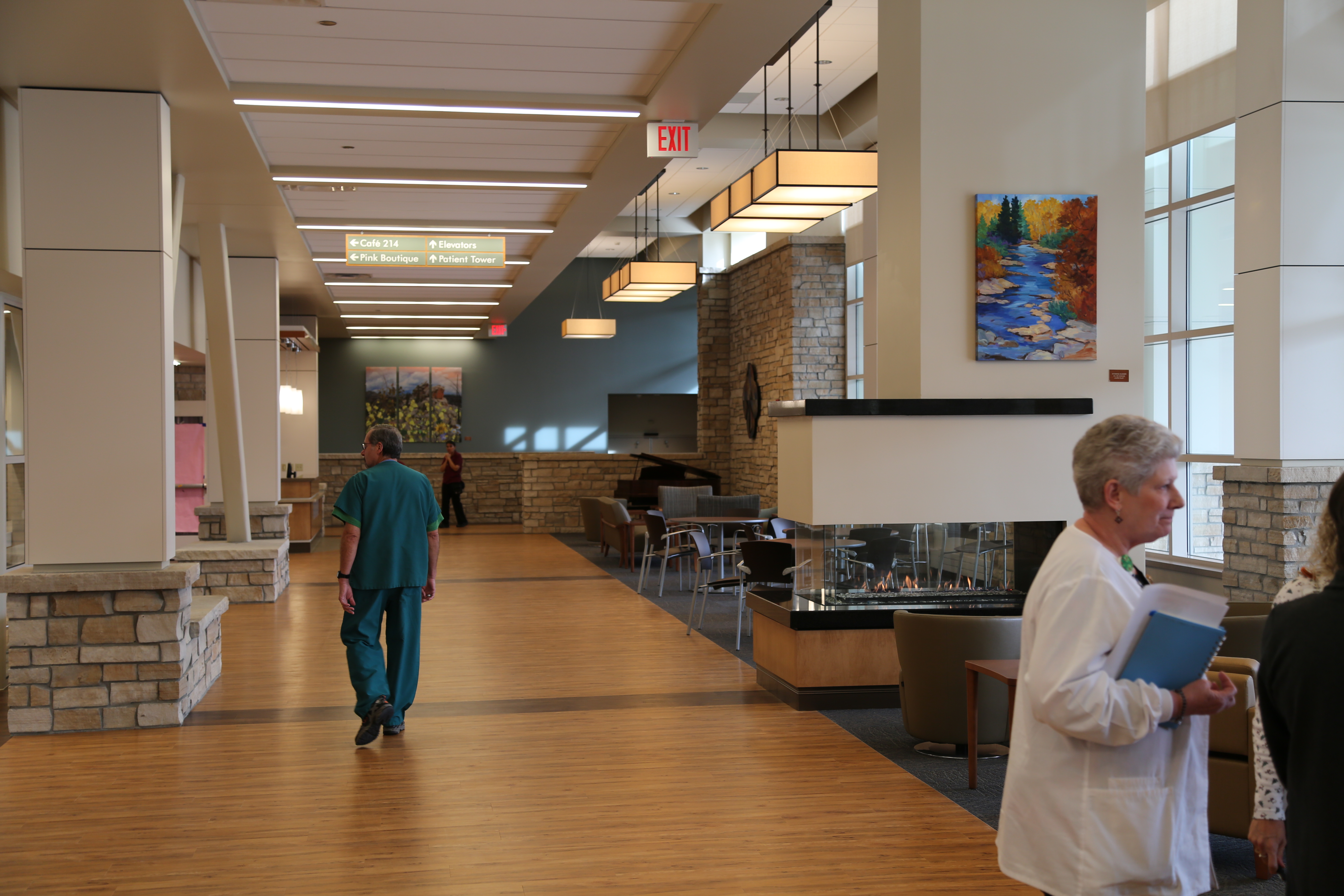
CRMC 9-25-17
Cheyenne Regional Medical Center (CRMC) has been recognized as one of “Health Care’s Most Wired®” hospitals for the fourth consecutive year. CRMC is one of four stand-alone hospitals in Wyoming and one of 461 hospitals or health systems in the nation to receive the award for 2017.
HealthCare’s Most Wired® survey is conducted each year by Hospitals & Health Networks (HHN) and the American Hospital Association (AHA). The survey examines how organizations are leveraging information technology (IT) to improve hospital and health system performance.
“The survey really digs into an organization’s level of IT adoption, sophistication, security, overall usefulness and disaster preparedness,” said Jody Siltzer, CRMC’s information technology officer/IT executive director. “We are not a big hospital compared to many others in the country who have won this award, but we are just as sophisticated in many ways. We have a great IT team here, and we are ranking nationally with some of the best hospitals in the country. That’s something we are very proud of.”
Most Wired hospitals are selected based on their achievements and competencies in four focus areas: infrastructure; business and administrative management; clinical quality and safety; and clinical integration. Requirements in all four areas must be met for an organization to achieve Most Wired status.
“Security and disaster recovery are areas that we score very well on year after year,” Siltzer said. “Cybersecurity in particular is always on our minds. We have invested quite a bit to keep our systems safe with in-house expertise and external consultants.”
The survey also determines if a hospital is using technology in meaningful ways that improve patient outcomes, protect patient information, improve patient-provider communication and prepare the hospital for the future of healthcare.
“Our system’s health information tools and technology make it easier for patients and providers to interact, thus improving communication, safety and patient-provider relationships,” Siltzer said. “We are proud of the gains we’ve made in these areas, especially over the past six years. The end result of implementing these tools and teaching our community how to use them is overall better patient care.”
In 2017 the Most Wired survey had 698 participants representing an estimated 2,158 hospitals. This is the 19th year that the survey has been conducted.
“The Most Wired recognition demonstrates the excellence we strive for at Cheyenne Regional Medical Center and our affiliated medical groups,” Siltzer said. “While we don’t do this to win awards and trophies, it’s certainly nice for our health system and our IT Department to be recognized in this way.”
National Results
According to the survey, Most Wired hospitals nationwide are using smart phones, telehealth and remote monitoring to create more ways for patients to access healthcare services and capture health information. This year’s results show:
- 76 percent offer secure messaging with clinicians on mobile devices.
- When patients need ongoing monitoring at home, 74 percent use secure e-mails for patients and families to keep in touch with the care team.
- 68 percent simplify prescription renewals by letting patients make requests on mobile devices.
- 62 percent add data reported by patients to the electronic health record to get a better picture of what is going on with the patient.
- Nearly half of the hospitals are using telehealth to provide behavioral health services to more patients.
- 40 percent offer virtual physician visits.
- More than 40 percent provide real-time care management services to patients at home for diabetes and congestive heart failure.
CRMC is among those hospitals that offer secure messaging, data compilation and the use of telehealth and virtual physician visits.
Hospitals across the country have also increased their use of sophisticated IT monitoring systems to detect patient privacy breaches, monitor for malicious activities or policy violations and produce real-time analysis of security alerts. Survey results show:
- 97 percent use intrusion detection systems.
- 96 percent perform data access audits.
- Nearly 90 percent run targeted phishing exercises to teach employees to question suspicious emails.
CRMC is also among those hospitals that use intrusion detection, perform data audits and train employees on how to identify phishing emails that can compromise security.
“The Most Wired hospitals are using every available technology option to create more ways to reach their patients in order to provide access to care,” said AHA President and CEO Rick Pollack. “They are transforming care delivery, investing in new delivery models in order to improve quality, provide access and control costs.”
Detailed results of the survey and study can be found in the July issue of H&HN. A full list of winners is available at www.hhnmag.com
About the American Hospital Association
The AHA is a not-for-profit association of healthcare provider organizations and individuals that are committed to the improvement of health in their communities. The AHA is the national advocate for its members, which include nearly 5,000 hospitals, healthcare systems, networks and other providers of care. Founded in 1898, the AHA provides education for healthcare leaders and is a source of information on health care issues and trends. For more information, visit www.aha.org.



